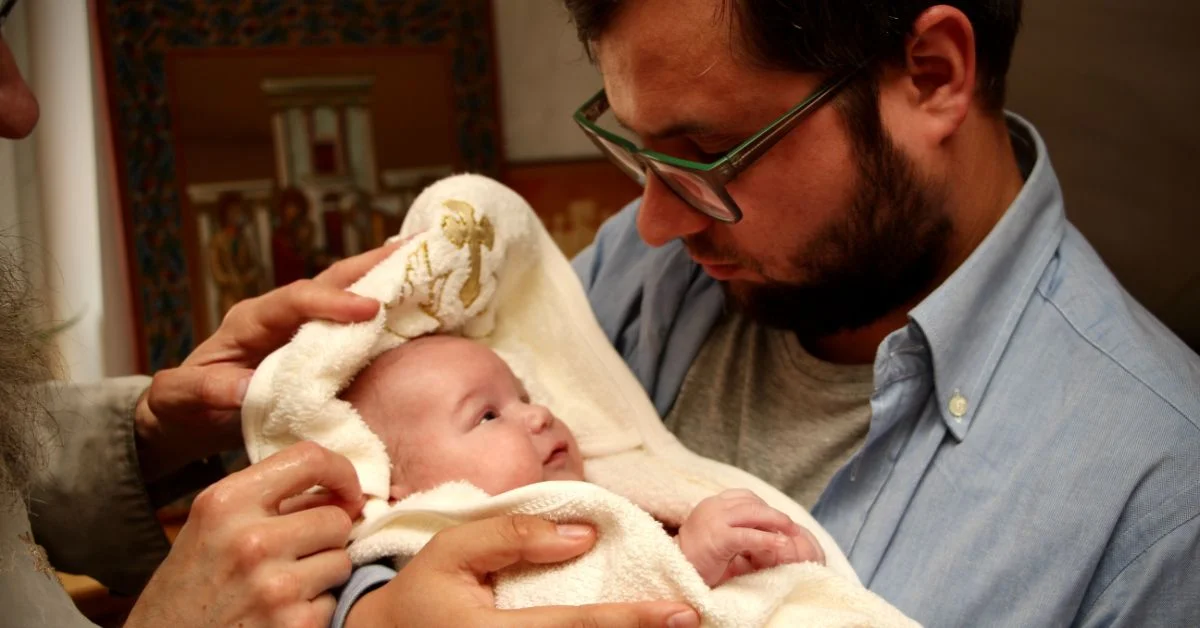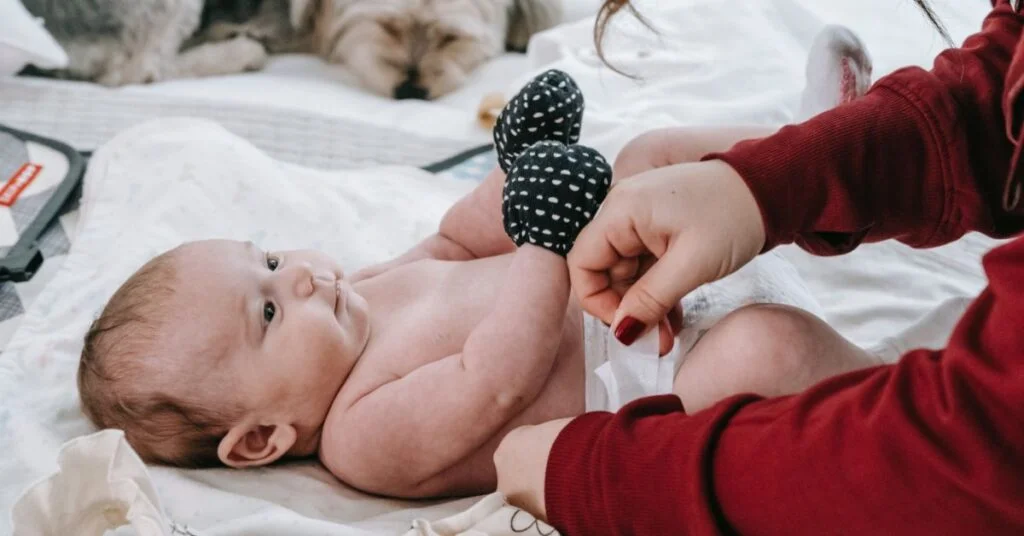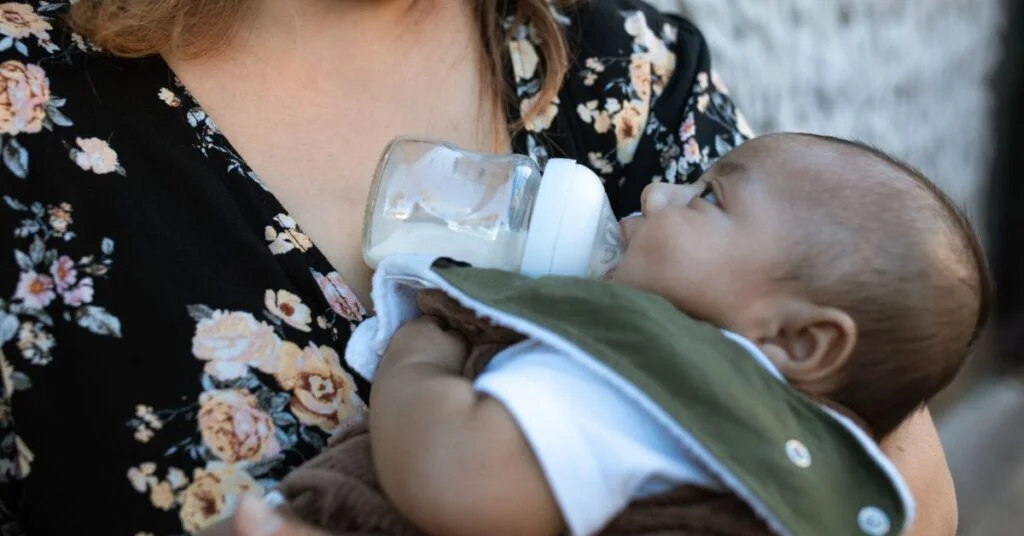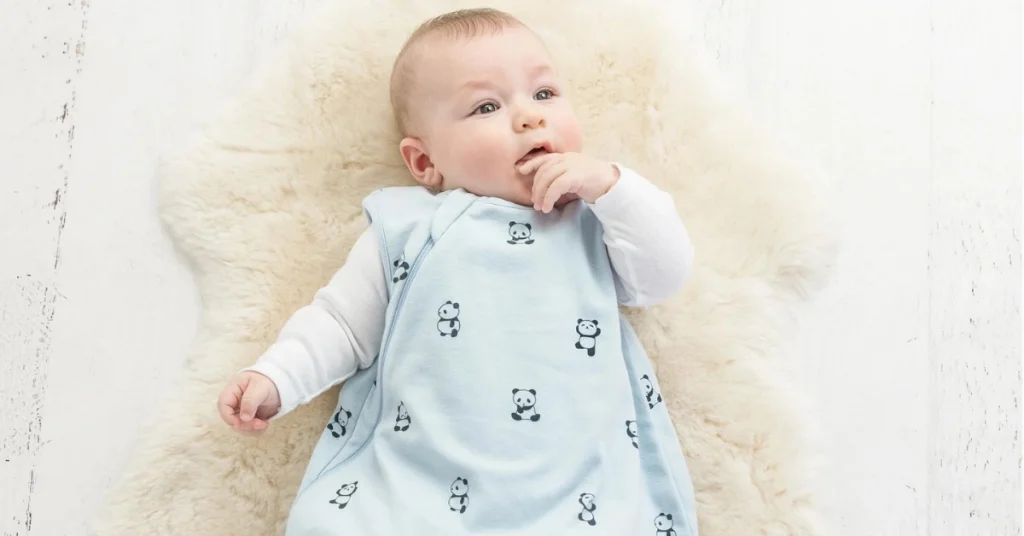After long months of waiting to finally meet your little one, you may be wondering if they recognize you as their dad. Find out more about how newborns know their dads and start engaging with your baby as soon as possible!
The products mentioned on this page were independently selected by Babycious editors. As an Amazon Associate, Babycious may earn a commission from qualifying purchases.

Photo by Ольга Танчик
Leaning close to your newborn baby and getting a smile back can be one of the most heartwarming experiences of parenthood, especially after long months of waiting to finally meet your little one. But does staring back into your eyes or tracking you as you come into the room mean that your newborn recognizes you as their dad?
The answer depends on how heavily present you were during pregnancy. The sooner you start engaging with your baby as a father, the sooner and the stronger you will be bonded to your baby. and it all starts in the womb!
Research shows that babies can recognize their dad’s voice after birth. They will respond with more activity when they hear their dad’s voice as opposed to the voice of a stranger. This is because they have already become familiar with their dad’s voice from hearing it throughout the pregnancy.
“That’s what that voice looks like!”
Here is what Dr. T. Berry Brazelton, founder of the Child Development Unit at Children’s Hospital in Boston, says in an interview: “We [the Child Development Unit at Children’s Hospital Boston] have evidence from our own work that the newborn baby knows the father’s voice and face within the first 14 days. By six to eight weeks, a baby has an entirely different behavioral set for the father than the mother.”
Newborn Babies Have “Intermingled Senses”
The way newborn babies perceive the world is fundamentally different from the way adults do. Studies have found that we are all born in a state of buzzing confusion that can be explained by the “neonatal synaesthesia” hypothesis. This means that newborns have “intermingled senses” where their visual, auditory, and tactile channels are still fused together. Colors may trigger sounds and shapes may stimulate smell.
In the womb, babies experience a combination of sounds, taste, and smells from their mom as one blended sensation that they recognize after birth. This is why the familiar voice of mom, dad, and even siblings can be so comforting to a newborn baby – it has been previously experienced as a single, blended sensation in the womb.
So, while newborns may not be able to recognize their dad’s face right away, they can still make an association between the sound of his voice and a comforting, familiar sensation. This connection between sounds, shapes, and scents is what allows them to bond with their dad soon after birth even if their eyesight is still (very) limited.
Can Newborns See Their Dad’s Face?
A newborn’s eyesight is extremely limited and it only becomes somewhat reliable around two to three months after birth. Before that, a baby’s vision is limited to the area between 8 and 14 inches away from their face and is blurry beyond that. They also can’t perceive depth, so they can’t tell how close or far away something is by sight alone. That’s why you may get a surprised face when you lean close to your newborn’s face.
However, this doesn’t mean that newborns can’t recognize their dad’s face at all. Thanks to neonatal synaesthesia, they can rely on their other senses to make the connection between their dad’s face, voice, and scent.
Newborn babies heavily rely on sound, specifically human voices, in their early weeks of life to establish and maintain a secure attachment with their dad or caregiver. Through interacting and bonding with your newborn, you can reinforce this sense of security and help them recognize you as their dad.
The Concepts of Mom and Dad
Although newborns will react to their parents in specific ways extremely early, they do not have the cognitive abilities to conceptualize the idea of “mom” and “dad”. It can take up to the age of 5 months before they begin developing self-awareness. Instead, your baby will likely associate “mom” and “dad”‘s voices with safety and care, which is the foundation of creating a secure parent-child relationship.
This association is not exclusive to biological parents, it can apply to any caregiver that the baby is regularly exposed to from birth. John Bowlby has studied newborns and their parents for decades and concluded that the primary caretaker, regardless of gender and relation to the baby, is the key figure in establishing a secure parent-child bond.
How to Get Off to A Good Start with Your Baby
There are many things you can do to kick-start a secure attachment with your newborn. And it really starts in the womb. It’s never too early to start engaging with your baby, here’s how :
- Start talking to your baby in the womb, it will get him or her used to your voice and help recognize you faster post-birth.
- You can also sing or hum to your baby in the womb, which is a great way to get your baby used to the sound of your voice and offers them a familiar tune to look forward to coming birth time.
- Once your baby is born start skin-to-skin contact as soon as your baby arrives. This helps regulate their body temperature and heartbeat but also helps them identify you by smell.
- Place your face within 8 to 10 inches from your baby’s face allowing them to make out your facial features.
- Focus on bonding activities like reading, singing, and talking to your baby. This will help them recognize your voice faster, and help establish a strong bond.
- Lastly, spend quality time with your baby as often as you can. The more you show your baby love and affection the stronger your bond will be.
Bottom Line
In conclusion, newborn babies do recognize their dad, but only if they have spent enough time bonding with them during pregnancy and the first weeks of life. This can be achieved through activities such as skin-to-skin contact, talking to your baby in the womb, reading, singing, and spending quality time with your baby as often as you can.
These activities will help create a secure attachment between the two of you and will help your baby recognize you as their dad.
The purpose of this article is informative and educational only. It’s not a substitute for medical consultation or medical care. We do not accept any responsibility for any liability, loss, or risk, personal or otherwise, incurred as a consequence, directly or indirectly, from any information or advice contained here. Babycious may earn compensation from affiliate links in this content.



